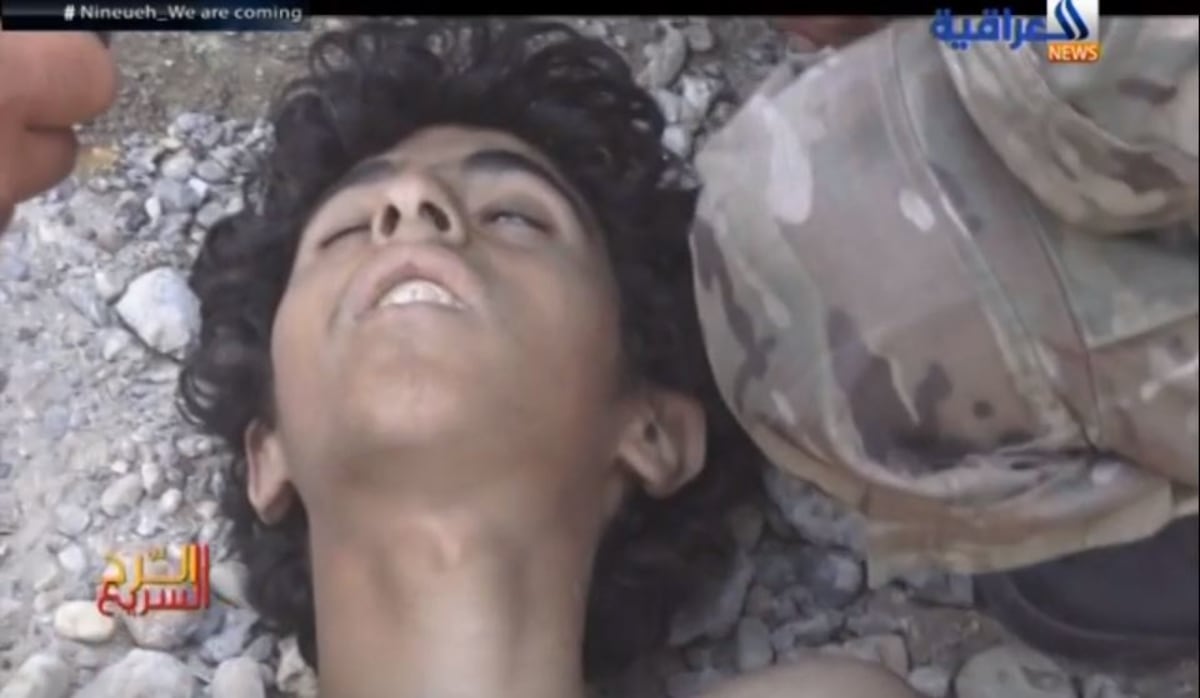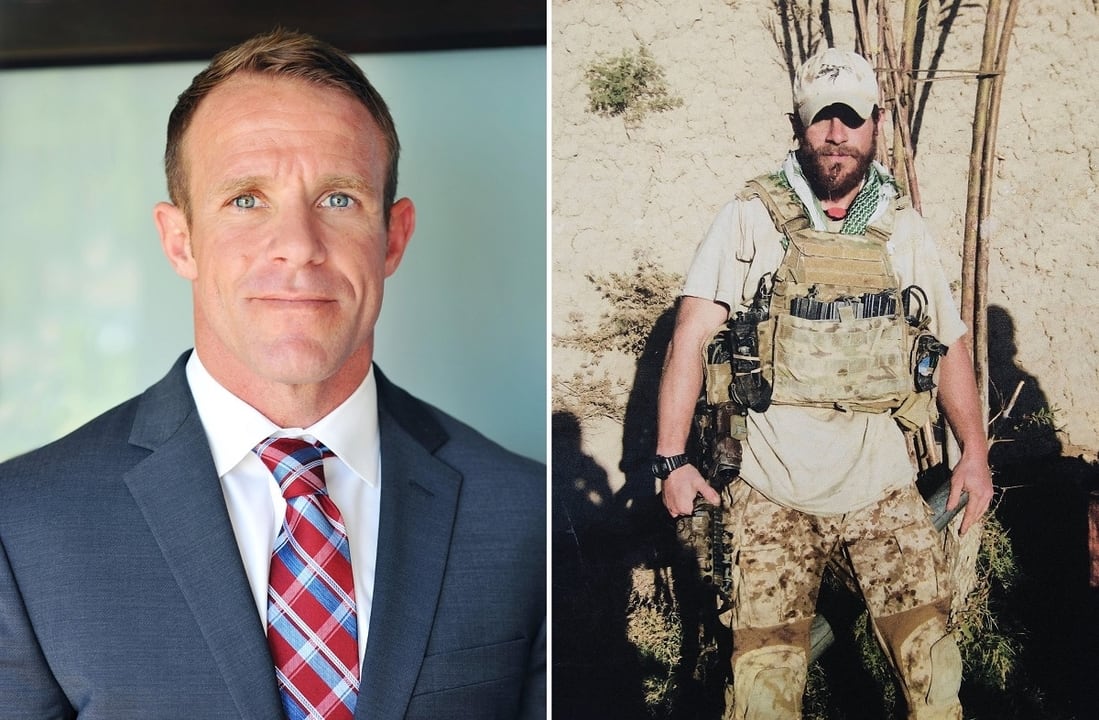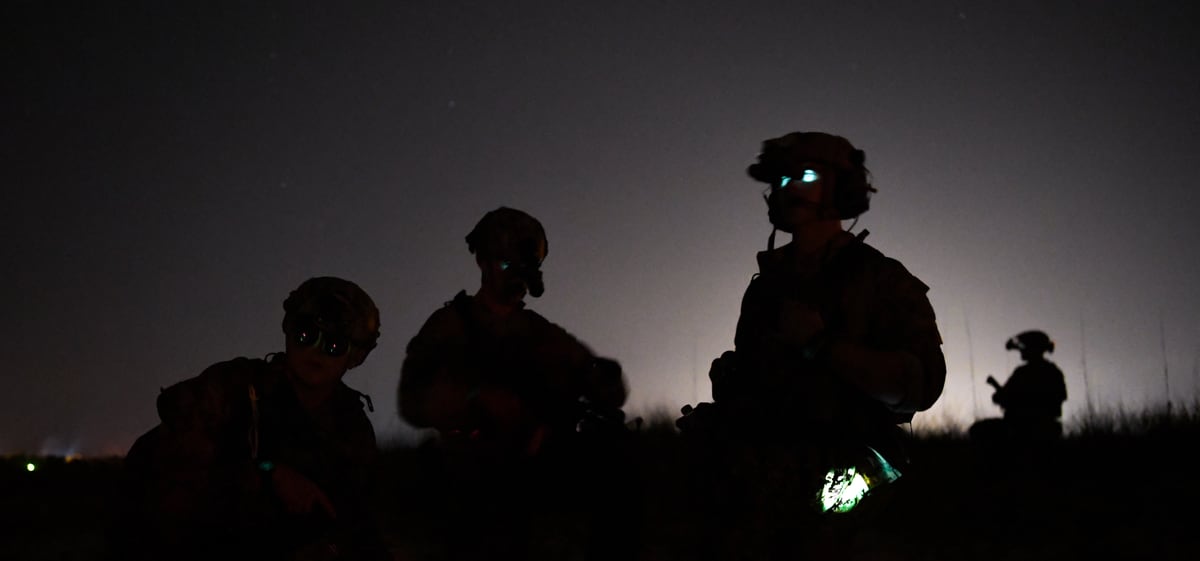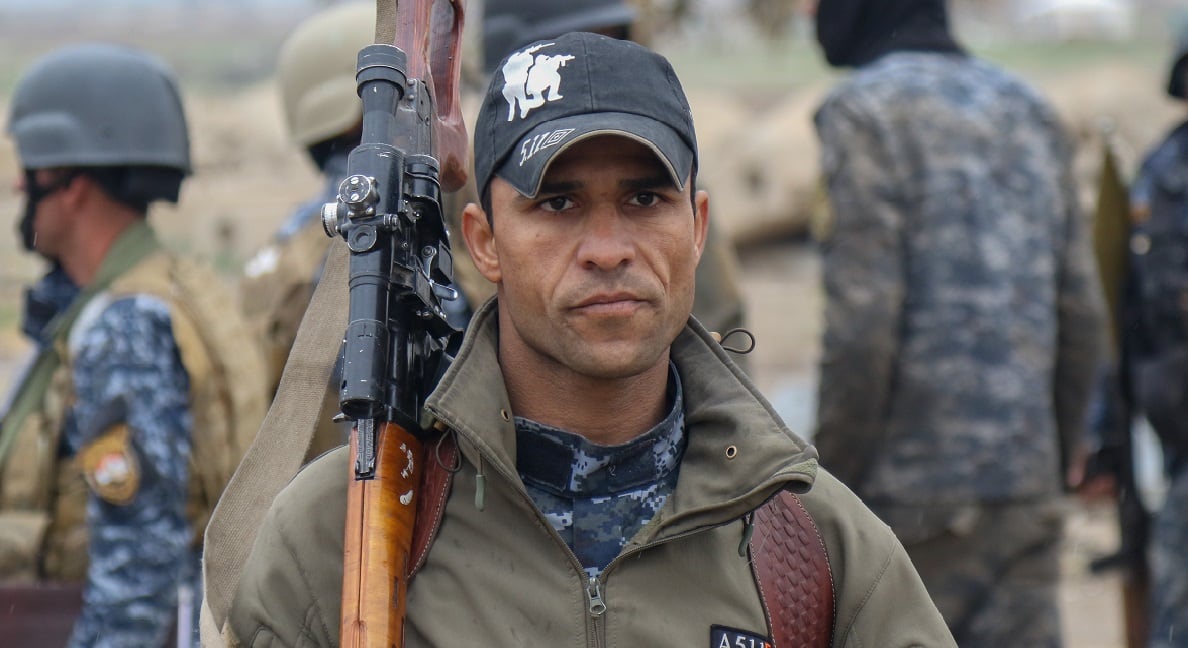Two high-ranking Iraqi military leaders with close ties to the SEALs cast doubt on the case military prosecutors have formed against Chief Special Warfare Operator Edward “Eddie” Gallagher, who’s accused of murdering a wounded prisoner of war, according to records provided to Navy Times.
Their transcribed interviews contradict nearly every aspect of the federal case against Gallagher, 39, who faces up to 18 criminal counts, including premeditated murder for allegedly stabbing to death a badly wounded Islamic State detainee near the Iraqi city of Mosul on May 3, 2017.
A report prepared by the Naval Criminal Investigate Service on Oct. 22 — five weeks after Gallagher was arrested by federal agents and incarcerated in the Naval Consolidated Brig Miramar in San Diego — includes an interview in Baghdad with Iraqi Emergency Response Division commander Maj. Gen. Abbas al-Jubouri and his aide, Col. Issa Kadhim.
The ERD is the Iraqi Ministry of the Interior’s elite special forces unit, and both al-Jubouri and Kadhim worked closely with Gallagher’s SEAL platoon during anti-Islamic State clearing operations in northern Iraq in 2017.
Although painted by prosecutors as a sadistic SEAL sniper who took pot shots at Iraqi civilians, including children, al-Jubouri considered “Chief Ed” to be “always professional and I always worked so close to him,” according to his translated interview with an NCIS agent.
“Chief Ed was ‘long in the service,’ very experienced,” said al-Jubouri. "He was hard on them and responsible for them. They were very young and inexperienced. Chief Ed is experienced in war from lots of time in Afghanistan and Iraq and he is very good. Chief Ed was very good with all weapons systems, especially the (anti-tank rocket). He is the best Chief.”
“He was very strict with his men,” al-Jubouri added. “He was an asshole to them, like I am an asshole to my men — because you have to be as a leader. He was very aggressive and hard on his men, never wanting to stop working or take a break. Chief Ed never wanted to stop and he worked all the time."

Both al-Jubouri and Kadhim remembered “vividly” when they brought the Islamic State fighter to the SEAL compound and NCIS had no problem pinpointing the date because an Iraqi TV reporter interviewed the captured but seriously wounded boy shortly before Iraqi forces hauled him away.
According to the NCIS file, Ali Jawad, a TV combat correspondent with close ties to Shia militia groups, especially the Badr Brigade, did a brief videotaped interview with the ISIS fighter, which was later uploaded to the social media platform YouTube.
On his back, the boy said that he was 17 years old and joined the Sunni jihadist militia before the month of Ramadan because his father “was beating me and telling me we do not go with ISIS" and he wanted to hear them tell him he did a “good job.”
The reporter then turned to ERD field commander, Brig. Gen. Mahdi al-Hayali, who said that the boy was shot while carrying a PK machine gun, but was going to be taken to a village outside Mosul for interrogation.
Kadhim recalled the trip back to the SEAL outpost because he was along for the ride. Al-Jubouri said that the boy — he pegged his age between 15 and 17 — was the sole survivor of a band of ISIS fighters that once had numbered up to 50 militants before they were besieged by the ERD.
Struggling without a steady supply of food, water and ammunition, the unnamed boy was the only one left in the ISIS unit. He was discovered riddled with bullets, with the “most prolific” wound to his leg where “the artery was shot” and he was “bleeding badly, with little chance of survival," according to the transcribed interview.
The SEALs weren’t happy to receive him. In fact, “the Americans were mad, because 'they thought we were mistreating the wounded fighter by bringing him there in that manner, and dragging him on the ground.”
The Iraqis described SEAL corpsmen working on the fighter “for a long period of time.” Kadhim recalled that they give him “three bags, tubed his side, and worked on his leg,” but it didn’t seem to help the boy’s condition.
Al-Jubouri said that he asked the dying fighter three questions while he was still alert — his name, if he belonged to ISIS and how old he was.
The general no longer recalled his name, but he told NCIS that the boy said he was 17 and that all the fighters in his small group were from the same Sunni neighborhood in Mosul.
Here, however, the military prosecutors' version of events and that of the Iraqi military leaders diverge.
RELATED

Citing SEAL eyewitnesses who did not take the stand during the Article 32 hearing, prosecutors said last week that Gallagher plunged his knife into the ISIS fighter, killing him. They said that the chief later mugged in a photo next to the body, performed a re-enlistment service next to the dead youngster and operated an aerial drone over him, too.
When asked directly by the NCIS interviewer if they had seen Gallagher kill the wounded prisoner, al-Jubouri said, “No. Why would he do this? There was no need for this.”
He made a ticking noise with his tongue and his teeth, shaking his head, a way Iraqis show that they’re emphatic about an answer.
When the agent asked if the boy could’ve died from a stab wound from Gallagher which they didn’t see, al-Jubouri said, "No, he died from gunshot wounds. If I wanted to kill someone, I wouldn’t do it in front of witnesses. There were 20-plus people out there, including several Iraqi officers. He would never do that.
“The ISIS member died, and then we left the area, leaving the dead body behind, to having to be somewhere else. The body remained at that location for several days before it was taken away and buried.”
RELATED

But federal agents struggled to locate the body and it’s unclear in their reports if they ever found the remains and performed an autopsy on them, according to the files provided to Navy Times.
When Special Agent David Clack from the Contingency Response Field Office tried to dig it up on Sept. 15, the area was still thick with Islamic State operatives and a Marine Special Operations team pulled security.
Because of the high number of civilians killed in the urban fighting, bodies were strewn together in shallow graves dug by a front-end loader.
An Iraqi witness cracked a joke, saying that the section of Mosul where they were searching for the boy’s body was “like the horror movie Chuckie with dead people everywhere.”
RELATED

Even if he skirts the murder charge, Gallagher faces a pair of aggravated assault charges tied to a pair of alleged shootings of a noncombatant man and woman during the same deployment there, plus three obstruction of justice specifications tied to what prosecutors contend was an ongoing plot to cover up the alleged war crimes.
The Iraqis discounted those allegations, too.
“No, he would not this,” al-Jubouri said. “Also, he always had his (spotter) with him. If his (spotter) saw this, he would have told of this.”
He said Gallagher chose his positions carefully, after flying drones to reconnoiter the best watch positions. Italian soldiers were usually within 16 feet of Gallagher’s spot, too.
“I have worked with American 5th Special Forces Group, 7th Special Forces Group, 10th Special Forces Group, and Navy SEALs — of all I have ever worked with, Chief Ed is the best,” he said.
Gallagher also faces two separate specifications for allegedly abusing tramadol hydrochloride, a pain reliever, and unlawfully possessing Sustanon-250, an anabolic steroid. The Iraqis were not asked about drugs, however.
Both al-Jubouri and Kadhim said that they would appear at a court-martial, if the military held a trial.

Navy officials did not respond to email and telephone messages placed with them by Navy Times.
Gallagher’s legal team, however, pounced on the evidence.
“The NCIS and Group ONE investigators have completely ignored the testimony from these two witnesses,” said civilian defense attorney Phillip Stackhouse in an email to Navy Times. "Confirmation bias — the phenomenon of pursuing evidence that seeks to confirm our previously-held beliefs, and ignore evidence that contradicts our previously-held beliefs — is unfortunately a major driving force throughout this investigation.
"NCIS took the word of the accusers and ran with it, never stopping to think about reality, and never stopping to listen to logic or reason. An argument can be made that General Abbas [al-Jubouri] and Colonel Kadhim are the most-neutral — or least biased — witnesses in the entire case. Every other witness will be accused of either trying to take down Chief Gallagher to protect themselves, or trying to cover up a crime for him because they love and respect him.
“The two Iraqi officers, on the other hand, have absolutely no interest in the matter whatsoever. According to NCIS, both vividly recall the event, and both are adamant that Chief Gallagher only tried to save the mortally wounded ISIS fighter, who died of his injuries — not at the hand of Chief Gallagher. This was completely ignored by NCIS because it does not fit with what NCIS had already decided to believe.”
The Article 32 hearing against a second SEAL charged with allegedly covering up Gallagher’s crimes begins Tuesday morning in San Diego.
Professing his innocence, Lt. Jacob “Jake” Portier has vowed to clear his name, too.
Prine came to Navy Times after stints at the San Diego Union-Tribune and Pittsburgh Tribune-Review. He served in the Marine Corps and the Pennsylvania Army National Guard. His awards include the Joseph Galloway Award for Distinguished Reporting on the military, a first prize from Investigative Reporters & Editors and the Combat Infantryman Badge.




